Elections on time, please
We need a wide consensus that consolidating the democratic transition is the only solution to the mess we are in.
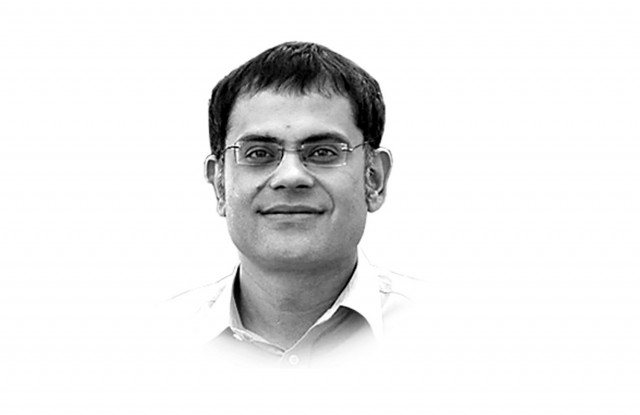
The writer is Director, Policy & Programmes Jinnah Institute, Islamabad. The views expressed are his own
Nothing is comparable to Gen Zia’s Machiavellian tricks to avoid an election until 1985. By then he had engineered an entire set of political class, which readily played ball with the junta. Zia’s death led to an election in 1988 but this was also engineered as the premier intelligence agency manipulated the outcomes through forging makeshift, quasi-ideological alliances against Benazir Bhutto’s Pakistan People’s Party. Through the 1990s we witnessed three more ‘fixed’ elections. At least one of them (1990) was recently declared as ‘stolen’ by the Supreme Court. In 1999, the military ended its covert rule and took over the country once again and organized another election in 2002 which returned pliable King’s party into power.
It took nearly a decade to restore democratic freedoms and parliamentary form of governance through the 2008 elections. The internal turmoil and global pressure on Pakistan did not create a conducive environment for the establishment to control everything. An extralegal division of powers between the political elites and the civil-military establishment took place whereby the latter appropriated the management of foreign and security policies. Parliament and the ruling coalition made some half-hearted, botched attempts to reclaim this area of governance without much success. However, in its own domain parliament settled the federal finance sharing formula as well as restructured the Constitution bringing it closer to the consensual parliamentary democracy framework.
It so happens that the current government is completing its five-year tenure. This by itself is a major feat given our tumultuous history. Of course, this is not enough to fix the long-term structural issues that bedevil the lives of ordinary Pakistanis but it surely promises a better future for citizen rights and their participation in governance. There is no shortcut to the phased evolution of the democratic system and electoral accountability processes. We have tried several other formulae as substitutes for representative rule and each time the country has suffered.
Therefore, the prospect of a delayed election is most worrying. Since the start of this government, the pundits with a visceral hatred for the PPP have been predicting the demise of the party and an early end to its rule culminating in a technocratic model where ‘clean’ and ‘competent’ magician-technocrats will fix the country. The last such experiment was conducted during 1999-2002 and almost all the reform initiated in that era has withered away. Political consensus and support on reforms are essential to their viability. How would the old wine in 2013 bottle be any different?
The Supreme Court order to undertake fresh delimitation in Karachi has opened up a Pandora’s box. A reasoned position has been articulated by Pakistan Institute of Legislative Development and Transparency which holds that if the Election Commission decides to “review the delimitation of constituencies in Karachi at this stage without the new census, there could be similar demands from many other parts of the country because it is unreasonable to believe that delimitation of constituencies in rest of the country was perfect and only the Karachi constituencies were wrongly drawn”.
Conspiracy theories suggest that the courts might aid a delay in the election. The simple question here is: why would the courts do that when they have said time and again that the doctrine of necessity has been buried? The Supreme Court also knows that its powers and their unfettered exercise become possible within the democratic framework. The resurgence of terror attacks in Khyber-Pakhtunkhwa and continued insurgency in parts of Balochistan have also been cited as issues that may lead to a postponement of the elections. This is also an untenable argument as the 2008 elections were also held in a relatively similar environment. The other conspiracy theory is that the military may not like to work with Nawaz Sharif or ‘bear’ another term of President Asif Ali Zardari.
Newspapers and TV channels editors, if at all they screen anything, must arrest the wild imagination of their staffers and ask them to cite sources that can testify to the grand plan to postpone the elections. It is suicidal for the media to air options which are extra-constitutional and which could potentially jeopardise their freedoms. We need a wide consensus that consolidating the democratic transition is the only solution to the mess we are in. Why can’t the media focus on electoral procedures, the code of conduct, enabling the participation by women and assisting the electorate to shape its voting preferences?
A free, rule-based and transparent election remains the top-remedy for improving Pakistan’s governance. The government and the opposition should agree and announce the election schedule at the earliest and drone the rumour-factories at work.
Published in The Express Tribune, December 25th, 2012.

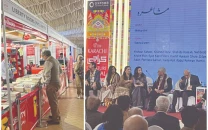
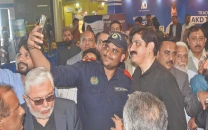
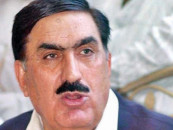

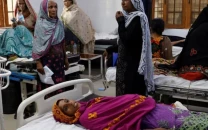
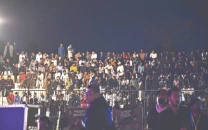












COMMENTS
Comments are moderated and generally will be posted if they are on-topic and not abusive.
For more information, please see our Comments FAQ